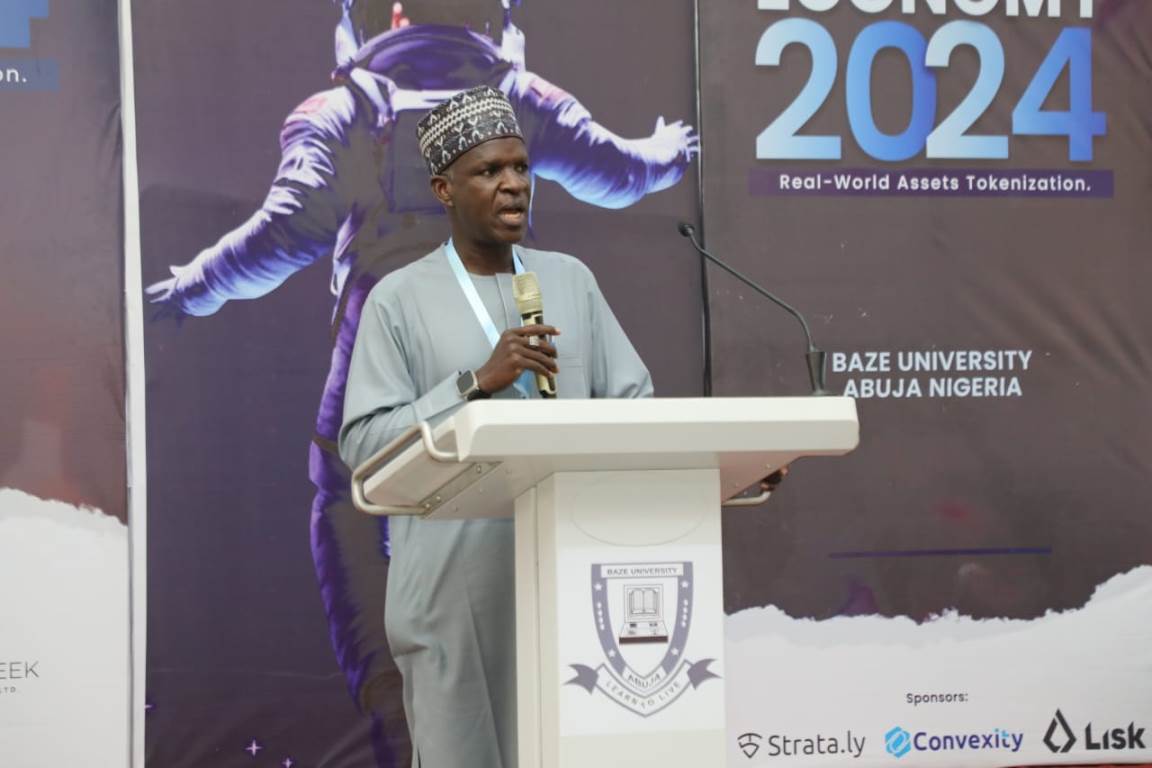GRTech
Blockchain, Tokenisation will Enhance Asset Management – DG NITDA
By Sandra Ani


Kashifu Inuwa, the director general of the National Information Technology Development Agency (NITDA), has called for a concerted effort among industry players, government officials and experts to explore the transformative potential of Blockchain technology in asset management and economic development of the country.
The DG made this appeal at the Tokenised Economic Conference and Exhibitions themed; Tokenised Economy 2024; Real-World Assets Tokenisation, organised by Cyberchain in collaboration with the BAZE University and NITDA.
Recognising technology as an enabler for the nation’s GDP growth, the conference was a platform for industry professionals to share ideas and expertise in exploring opportunities in digital assets finance, capital markets, commodities, mortgage, bonds and real estate fractional ownership.
Giving his keynote address at the event, Inuwa outlined the benefits of tokenising physical and digital assets through Blockchain technology and emphasized its capacity to revolutionise asset management, exchange and security.
The DG who was represented at the event by the Director of e-Government and Digital Economy Development department, Engr. Salisu Kaka described tokenisation as converting traditional physical or digital assets into digital tokens recorded on a blockchain.
While explaining that tokens serve as digital representations of real assets, Inuwa mentioned that “when assets are tokenised, a Blockchain token is issued as a digital and legal representation of the real asset which allows assets to be sold, held and traded in a digital format, enhancing liquidity and accessibility.”
He further emphasised that the process of tokenisation involves choosing the asset to be tokenised, complying with legal and regulatory requirements, establishing secure custody solutions and blockchain networks and distributing tokens to potential investors through secure payment channels.
Laying reference to real estate investment markets which are plagued by inefficient transfer and record-keeping processes, Inuwa averred that tokenisation would mitigate the challenges by automating these processes.
“It offers several advantages over traditional real estate financing, such as automating processes, increasing liquidity, lowering investment barriers, and improving transparency. As a result, it is considered a promising development for the future of real estate markets,” he stated.
While stressing the need for Nigeria to position itself as the lead nation in the tokenised economy in Africa, he lauded the Lagos State’s plan to tokenise real estate and described it as a bold move that could set an example for other states to follow.
He added that tokenising other key sectors, including agriculture, oil and gas, securities, bonds and derivatives could further accelerate wealth creation and economic growth in the country.
Inuwa however noted that it was essential to establish a clear regulatory framework that would boost the confidence of investors as well as develop strong infrastructures that would support the tokenised economy.
He disclosed that since the launch of the National Blockchain Policy (NBP) and the inauguration of its steering committee, NITDA has been at the forefront of promoting the use of emerging technologies particularly blockchain technology by working closely with the blockchain ecosystem in promoting the adoption of the blockchain technology across all sectors of the country.
“Real-world asset tokenisation would offer a promising avenue for Nigeria to unlock its economic potential and improve the lives of its citizens. Nigeria has the potential to become a leader in the tokenised economy in Africa. By investing in infrastructure, education, and a supportive regulatory environment, Nigeria can unlock the full potential of tokenisation and drive economic growth.” he concluded.
In his remark, the Director General of the Securities and Exchange Commission (SEC), Dr. Emomotimi Agama spoke on how tokenisation breaks down traditional barriers and makes investments in areas like real estate and art accessible to a wider range of people, regardless of their financial status.
He stated that the shift would allow for the diversification of investments and would encourage more people to participate in previously exclusive markets.
Noting that tokenisation is a process that converts real-world assets into digital tokens, he said “Through tokenisation, these highly qualified assets become more accessible to a broader audience, democratizing wealth and enabling more inclusive financial participation.”
-



 GRPolitics5 days ago
GRPolitics5 days agoNULGE, Stakeholders Endorse Mbah, Reaffirm 2027 Support as Tomorrow Is Here Movement Inaugurates Coordinators
-



 News4 days ago
News4 days ago‘You escape, or you die’: African men say Russia duped them into fighting in Ukraine
-



 GRTech5 days ago
GRTech5 days agoFDI: Enugu Govt, Haier Group Launch $20m Factory, set for $30m expansion
-



 Spotlight5 days ago
Spotlight5 days agoOgbuefi Remmy Nweke Takes Helm as Organization Ushers in New Era









